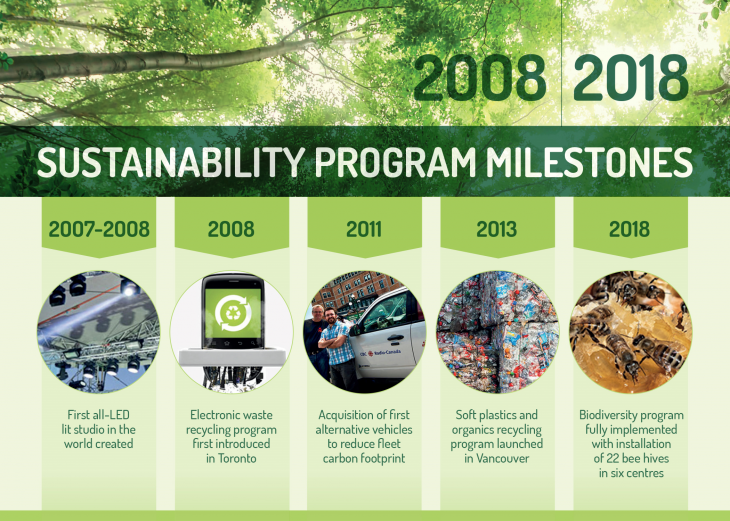
OTTAWA – Cuts to overall energy consumption as well as an in increase in the recycling and diverting of e-waste and scrap metal are among the highlights of CBC/Radio-Canada’s latest corporate Environmental Performance Report.
The report highlights the public broadcaster's “green” scorecard and initiatives from April 2017 to March 2018. This edition also marks the 10th anniversary of CBC/Radio-Canada environmental reporting.
During the last decade, CBC/Radio-Canada has:
– Recycled 1,450.2 metric tonnes of e-waste and 926.8 metric tonnes of scrap metal, the equivalent to 74.3 (32-metric-tonne) dump trucks;
– Decreased air emissions by 45.5%, the equivalent to 671,106 tree seedlings grown for 10 years; and
– Reduced carbon dioxide emissions in fleet vehicles by 35.3%, the equivalent to 1,164 passenger vehicles driven for one year.
Within the last year, the Corp also decreased its surface area occupied, lowered its consumption of water and energy, slashed air emissions, and added 22 beehives across six of its buildings.
“Ten years of proactive environmental performance reporting is a significant milestone,” said CBC/Radio-Canada's president & CEO Catherine Tait, in the report’s news release. “We’ve come a long way, launching a number of innovative initiatives, many of which have expanded across the country. Being sustainable is part of our commitment to being a modern public broadcaster. Based on the results achieved to date, I’m confident we can continue working in ways that help minimize our impact on the environment and aid in ensuring a better world for future generations.”



